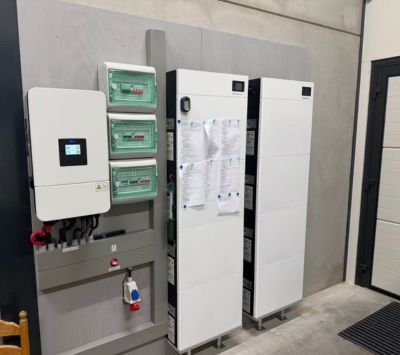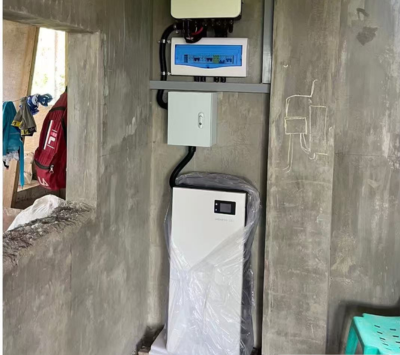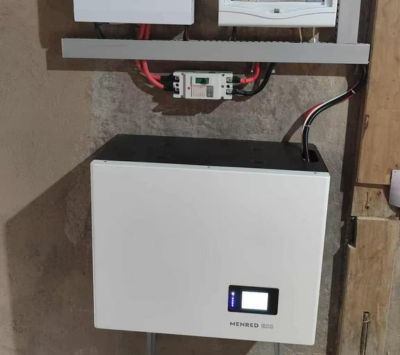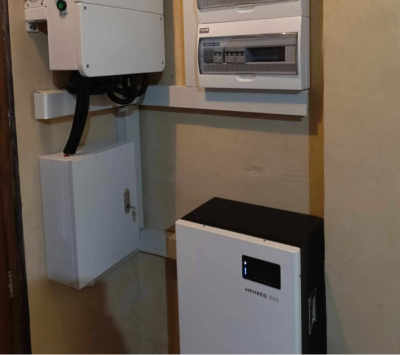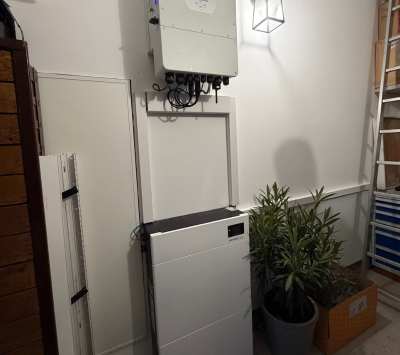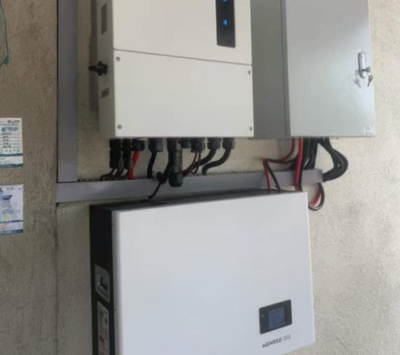In recent years, lithium-ion battery modules have emerged as the gold standard for energy storage systems, finding applications in everything from electric vehicles (EVs) and renewable energy setups to consumer electronics and industrial applications. While lead-acid batteries have been a trusted technology for decades, lithium-ion battery modules have largely surpassed them in terms of performance, efficiency, and versatility. This article explores the key advantages of lithium-ion battery modules over traditional lead-acid batteries, focusing on how they revolutionize modern energy storage.
What is a Lithium Ion Battery Module?
A lithium-ion battery module is a self-contained unit composed of multiple lithium-ion battery cells, interconnected to provide a desired voltage and capacity. These modules are equipped with integrated components such as a Battery Management System (BMS), thermal management systems, and protective housings to ensure safety and reliability.
The modular design allows these batteries to be customized and scaled according to specific applications, making them highly versatile for use in residential solar energy systems, electric vehicles, backup power systems, and more. By contrast, lead-acid batteries are often large, bulky, and less flexible in terms of design and scalability.
Lithium Ion Battery Modules vs. Lead-Acid Batteries
Lithium-ion and lead-acid batteries serve the same primary purpose: energy storage. However, the way they achieve this and their efficiency in doing so differ significantly. Below, we explore the advantages of lithium-ion battery modules compared to traditional lead-acid batteries.
1. Higher Energy Density
One of the most significant advantages of lithium-ion battery modules is their high energy density. Energy density refers to the amount of energy a battery can store relative to its size and weight. Lithium-ion batteries can achieve an energy density of 150–250 Wh/kg, whereas lead-acid batteries typically offer only 30–50 Wh/kg.
- Impact on Applications:
The higher energy density of lithium-ion modules means they can store more power in a smaller, lighter form factor. This is critical for applications where space and weight are constraints, such as electric vehicles and portable energy storage systems. For example:- In EVs, lighter batteries improve range and vehicle efficiency.
- In home energy storage, compact lithium-ion modules take up less space, making them more practical for residential installations.

2. Longer Lifespan
Lithium-ion battery modules have a significantly longer lifespan than lead-acid batteries, making them a cost-effective choice in the long run. The lifespan of a battery is typically measured in charge/discharge cycles.
Lithium-Ion Batteries: Can last 6,000 cycles or more, depending on the specific chemistry and usage conditions.
Lead-Acid Batteries: Generally last only 300–500 cycles before their performance degrades.
Why This Matters:
Longer lifespan reduces the frequency of battery replacements, lowering maintenance costs and reducing the environmental impact of disposal. For example:- A lithium-ion battery module used in a solar energy system can remain functional for 10–15 years, whereas a lead-acid battery may need to be replaced every 3–5 years.
3. Higher Efficiency
Efficiency refers to how much of the stored energy can be retrieved during discharge. Lithium-ion battery modules boast efficiencies of 90–95%, compared to lead-acid batteries, which are typically 70–85% efficient.
- Charging Efficiency: Lithium-ion batteries can charge much faster than lead-acid batteries because they can accept a higher current during the charging process without significant energy loss.
- Discharge Depth: Lithium-ion batteries support a depth of discharge (DoD) of up to 90%, while lead-acid batteries are limited to 50% to prevent damage.
- This means that for the same battery capacity, a lithium-ion module provides more usable energy than a lead-acid battery.
4. Lightweight and Compact Design
Lead-acid batteries are notoriously heavy due to their use of dense materials like lead. Lithium-ion modules, on the other hand, are much lighter and more compact.
- Weight Comparison: Lithium-ion batteries are approximately 1/3 the weight of equivalent lead-acid batteries.
- Application Benefits:
- In electric vehicles, the reduced weight directly translates to better fuel efficiency and extended range.
- In portable applications, such as power tools or camping battery packs, lighter batteries improve usability and convenience.
5. Low Maintenance
Lead-acid batteries require regular maintenance to function properly, such as checking water levels, ensuring proper ventilation to prevent hydrogen gas buildup, and periodic equalization charges to prevent sulfation. In contrast, lithium-ion battery modules are virtually maintenance-free.
- No Watering Needed: Lithium-ion batteries do not rely on liquid electrolytes, so there is no need to top up water levels.
- Integrated BMS: The built-in battery management system monitors performance and ensures safety, eliminating the need for manual maintenance.
6. Superior Temperature Tolerance
Lithium-ion battery modules perform better across a wider temperature range compared to lead-acid batteries. While lead-acid batteries can suffer significant capacity loss in extreme cold or heat, lithium-ion batteries maintain consistent performance.
- Cold Weather Performance: Lithium-ion batteries lose less capacity in cold climates, making them suitable for use in regions with harsh winters.
- Thermal Management: Many lithium-ion modules include integrated cooling systems or heat dissipation features to prevent overheating during high-demand applications.
7. Faster Charging
Lithium-ion battery modules support rapid charging, significantly reducing downtime compared to lead-acid batteries. While lead-acid batteries can take 6–12 hours to charge fully, lithium-ion modules can achieve a full charge in 1–4 hours, depending on the charger and battery size.
- Fast Charging Benefits:
- Ideal for applications that require frequent use, such as EVs and industrial equipment.
- Faster recharge times ensure better energy availability for backup power systems.
8. Environmentally Friendly
Although lithium-ion batteries are not without environmental concerns, such as resource extraction and recycling challenges, they are still more eco-friendly than lead-acid batteries in several ways:
- No Toxic Materials: Lead-acid batteries contain lead and sulfuric acid, both of which pose significant environmental hazards if not disposed of properly.
- Higher Efficiency and Lifespan: Reduce waste and energy consumption over the battery’s lifetime.
- Recycling Programs: The lithium-ion battery recycling industry is growing, with advancements in recovering valuable materials like lithium, cobalt, and nickel.
9. Safety Features
Modern lithium-ion battery modules are equipped with advanced safety mechanisms, such as:
- Battery Management Systems (BMS): Monitor voltage, temperature, and charge levels to prevent overheating, overcharging, and short circuits.
- Thermal Management: Prevent thermal runaway, a potential risk in high-stress applications.
Lead-acid batteries, while reliable, lack the sophisticated safety features of lithium-ion modules, increasing the risk of spills, gas emissions, and accidental damage.
10. Total Cost of Ownership
While lithium-ion battery modules have a higher upfront cost, their longer lifespan, higher efficiency, and low maintenance requirements make them more cost-effective over time.
- Lifetime Cost:
- A lead-acid battery might seem cheaper initially, but frequent replacements and maintenance costs add up.
- Lithium-ion modules deliver greater value over their extended lifespan.
Conclusion
Lithium-ion battery modules offer numerous advantages over traditional lead-acid batteries, including higher energy density, longer lifespan, greater efficiency, and lower maintenance requirements. Their superior performance and adaptability make them the preferred choice for modern energy storage systems across various industries, from renewable energy to electric vehicles and backup power solutions.
As technology advances and costs continue to decline, lithium-ion battery modules are set to play an even greater role in shaping the future of energy storage, replacing outdated technologies like lead-acid batteries. Whether you’re looking for reliability, efficiency, or sustainability, lithium-ion battery modules are the clear winner.

